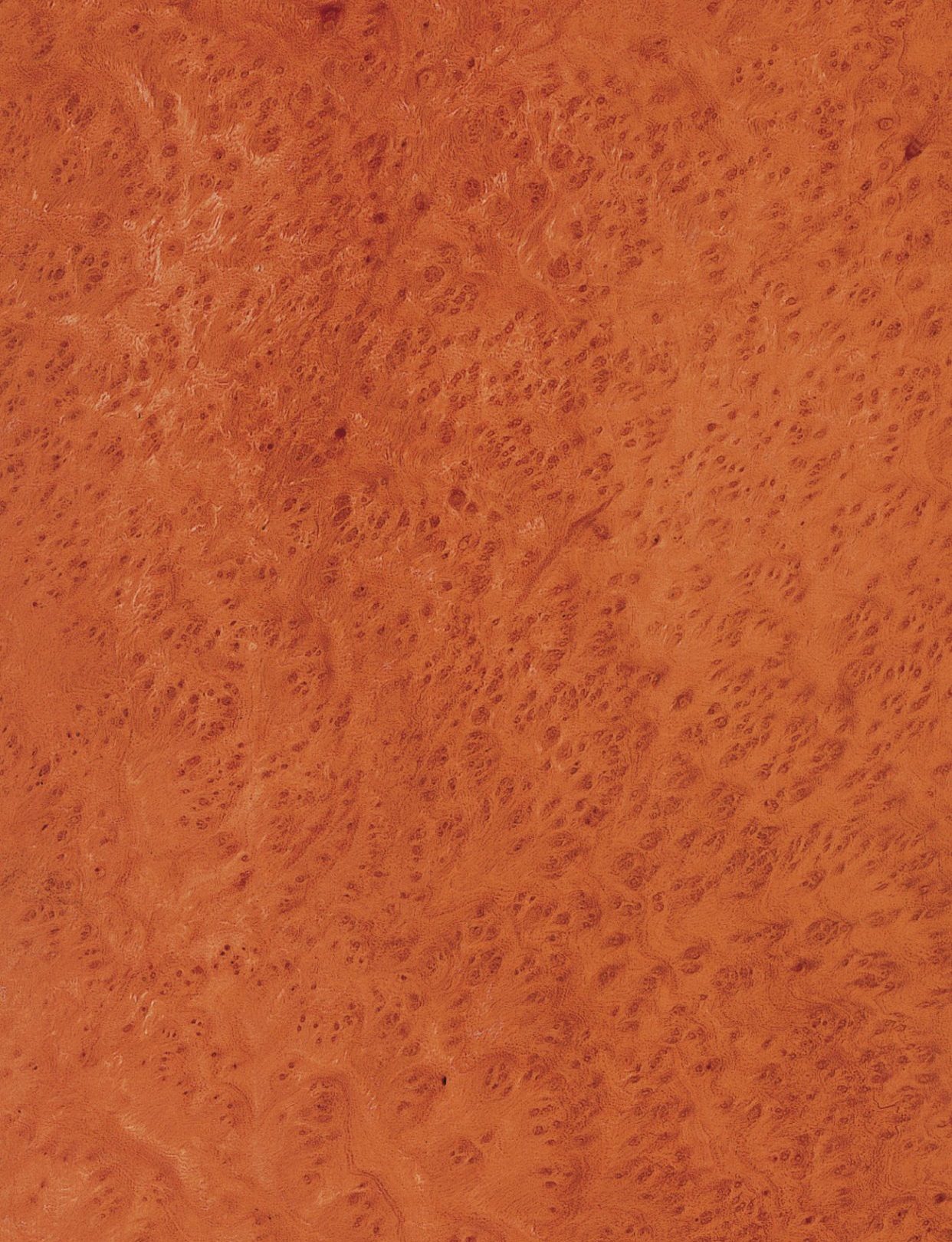
Madrone Burl
Arbutus menziesii

Trade Names
Madrone Burl
Origin
USA
Range
In North America down the Pacific Coast from Canada to California and Mexico. The Madrone Burl produces its burl growth as root growth half over and half under the soil, i.e. the burls must be dug out to obtain them. In the USA this is done by hand in many cases to prevent damage to the valuable wood by heavy machinery.
Uses
Rotary cut wood for choice face veneers, luxury architectural woodwork, luxury furniture, inlays and cabinet making.
Properties
The wood is reddish-brown and the root burls are very dense with generally closed grain. The tree grows very slowly and, depending upon actual location, is straight without any branches but can also be bent or occur in bush form. The wood is weather resistant, very hard and tough. Root burls are purchased by weight.
Machining
Due to the irregular grain considerable more power is required for machining. Smooth surfaces are difficult to produce. This problem is overcome to a certain extent by steaming before slicing.
Seasoning
Madrone Burl must be dried very slowly and carefully to take into account the problem of different shrinkage directions resulting from the wavy grain.
Finishing
Surface treatment with all finishes is possible but calls for thorough pretreatment to obtain a smooth surface.
Jointing
Joints with Madrone Burl are restricted to glues and screws but those can be produced without any problems.

